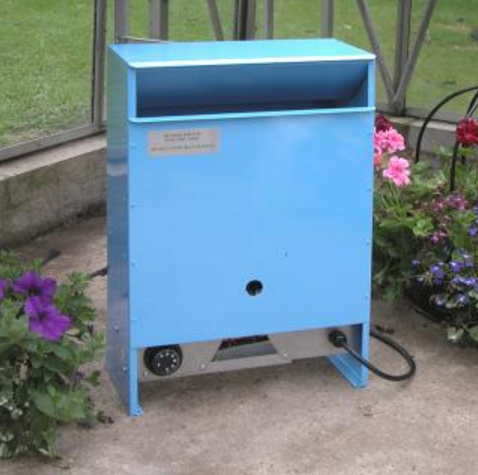
The heat of summer has left and gardeners and homeowners alike are scrambling to prepare their over winter workspace for the deep-freeze that inevitably comes every year. Fall is the busiest time of year for the greenhouse. Fragile plants need to be moved indoors and fall starts must be propagated. For greenhouse owners the coming of fall and winter certainly does not spell an end to the growing season
Fall is also time for the average homeowner to transform their garage into a heated workshop, and prolong the slew of projects that have been procrastinated time and again. Really, it happens to the best of us. For a surprisingly small amount of money, a heater can be installed in any garage, workshop, or barn that makes the age old “it will have to wait till next year” excuse obsolete. I know that probably comes as a sad bit of news for some of you, but others may welcome the extra few months of productive tinkering.
Selecting the Correct Heater
Selecting the correct heater from the hundreds of different choices out there can be difficult. Well take heart, picking the correct heater is really much easier than it might seem. Most heaters available today for hobby greenhouses and residential applications are easy to install, setup, and maintain (although we always recommend contracting a trained professional to perform any installation or maintenance on your heater). There are a simple set of questions you need to answer before you can decide on a heater to meet your needs.
What Power Source do you Have Available?
Answering this question is really the biggest hurdle, and will narrow down your choices more than nearly anything else. Most hobby greenhouse or homeowners only have one, maybe two, power sources that will be available to them. Those are going to be:
120v Electricity (Standard Household)
Everyone is going to have access to this, with the exception of detached garages or greenhouses located away from a home. While it’s pretty ubiquitous, it’s also not going to be very powerful. It’s generally not going to be a viable for any size garage. It would only apply to small greenhouses, and even with them it might require two or more heaters to reach maintain the desired level of heating. But because of the electrical amp draw of these small heaters, each one has to be on its own unique circuit. This probably makes any more than one small 120v heater impractical.
Natural Gas or Propane
This is another power source that is pretty accessible and also relatively inexpensive and efficient. The service is easy to bring to even detached buildings. For these reasons, we recommend a forced air gas heater for larger greenhouses and nearly all garage installations. They are able to heat large spaces, operate quietly, and are generally maintenance free.
240v Electricity
While it’s going to be less common, the higher output electrical is a great power source for any heater. You just have to make absolutely sure that the electrical requirements needed by your heater are met. Sometimes these are pretty beefy, so plan accordingly.
What is my BTU Requirement?
Defining the power source available to you is going to give you a type and probably a model of heater for your application, but you are still going to have to determine the size that you need. When calculating the size of a heater you need, the number to be concerned with is BTUs. I’ll spare you the boring scientific explanation of what exactly a BTU is, and just leave it at this: your heater needs to output the same or more BTUs as your building requires from heat loss. Simply stated, your heater just needs to replace the amount of heat being lost naturally. There are several calculators out there that can help you find your heat loss in BTUs; in most cases the only pieces of information you will need to calculate BTUs are your desired temperature rise (the difference between the low temperature in your space and the temperature you want to maintain), the insulation level, and the dimensions of your space.
How do I Get This Installed?
I recommend that you get a certified professional to install your heater. It creates fewer headaches for everyone in the event something isn’t functioning properly. With that said, most heaters designed for these applications are pretty easy to install for those who are mechanically inclined. So definitely contact a local professional first, but you should also be confident in your ability to complete the install should you decide to undertake it.
A heater is a great way to add productive workspace to your home during the winter when you might otherwise be inclined to enter a state of hibernation. Although there are many options available to you, it is pretty easy to select the perfect heater for your specific application. A heated garage or greenhouse is going to be a fantastic winter retreat for many, many years to come.
Drew Landis is Social Networking Coordinator for an online greenhouse retailer.
Related Articles & Free Email Newsletter
7 Necessary Greenhouse Accessories & Supplies
Inexpensive Tools and Materials Every Small Greenhouse Grower Should Have




Comment here